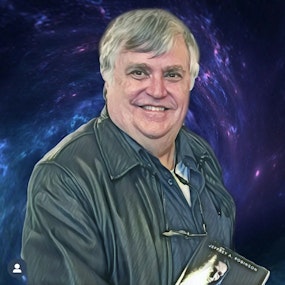Yes, but not in the way you think.
Although some ‘AI Doomers’ (like Elon Musk, Geoffrey Hinton, also known as Google’s "Godfather of AI," and other misguided technologists and futurists) predict the demise of mankind will be caused by machines that will rise up and destroy us, there is really nothing to worry about.
Despite the fact that there is a tight-knit community convinced that A.I. poses an existential risk to the human race, they are comprised (for the most part) of pseudo-scientific conspiracy theorists who promote a mix of science fiction horror and chicken-little, sky-falling doom
Not surprisingly, this type of hysterical nonsense is typical whenever significant advances in science and technology occur.
- When trains were first introduced many scientists claimed that if they traveled faster than 30 miles per hour all the air in the cabins of train cars would be sucked out and people would die.
- The days of early automobiles were filled with predictions of thousands of deaths, and the collapse of industries that depended on horses. The cars would break down and leave people stranded.
- People were afraid to use early telephones because they were told they would explode or electrocute people, especially during thunderstorms.
- When TVs became popular teachers said people would forget how to read.
- People thought riding in airplanes was tantamount to suicide because they would fall out of the air because they were too heavy.
- When calculators were introduced, people predicted that children would lose the ability to slide rules or perform basic arithmetic.
- Nuclear power plants would explode and kill millions.
- When Photoshop became popular many claimed that it would destroy photojournalism and the camera industry because everything could be faked.
- When Auto-tune was first used people predicted that the music industry would collapse and all music would be artificial. Artists and musicians would all be lip-synching frauds.
- Now with the advent of AI programs like ChatGPT writers will lose their jobs; authors will become obsolete along with marketers, copywriters, course creators, and screenwriters.
Sure. Technology changes things. Cars replaced horses, horse trainers, cartwrights, teamsters, blacksmiths, lederers, and farriers... but far more jobs were created for people to build cars, make parts, sell them, mine and process metal and fuels, and to repair and maintain them.
Electricity replaced the need for whale oil for lamps and lanterns but created and new industry to create lights and jobs like electricians and electrical engineers. It also enabled other more transforming industries (electrically powered machines, electronics, computers and more)
Natural gas replaced much demand for coal. Solar power, hydroelectric, wind turbine and even geothermal are set to replace petroleum fuels.
I remember, from back when I earned my Doctorate, how I spent $120 and two weeks working with researchers to conduct extensive literature searches for my dissertation. Today those activities could now be accomplished with a single Google search.
Boy, have things changed.
You see technology doesn’t solve problems. It transforms them. Some problems go away, but every new tech also introduces new ones.
With the Internet, we gained great access to information of all kinds, but we had to develop new methods to secure data, teachers had to devise new ways and new tools to detect plagiarism, as well as new strategies and jobs to deal with hackers, identity thieves, and scammers.
Patterns of behavior and skills change, as we adapt to a changing world. I remember when typing was a skill mastered only by a few (secretaries and early programmers). Now kids often learn keyboarding before they learn to write with pen or pencil and no one learns cursive anymore.
Will AI change things? Yes. In dramatic ways. Many problems will become easier to solve. For the other problems, new solutions will have to be found.
Will AI destroy mankind? Only in bad science fiction movies and in the minds of uneducated conspiracy theorists, the cognitively impaired, and the technologically obsessed and paranoid who cling to imagined terrors. Luddites and Chicken Littles will always appear when new technologies arise. And they will loudly profess predictions of doom and disaster and falling skies.
But the threats of AI are no more disastrous than the doomsayers of other earlier technological change.
AI will no more destroy mankind than TVs destroyed reading, or calculators destroyed mathematics.
Some jobs will be enriched, others will go away, or change, or adapt.
Machines won’t destroy mankind. Why would they? They need humans. How could they? They don’t have those capabilities. Such predictions reflect real fears but not reality.
Of course, people may misuse AI as they might misuse any tool (fire, explosives, power, Photoshop, auto-tune, computers, and the Internet) But if mankind is destroyed, it will likely be by people (pollution, overpopulation, climate changes, etc.) not AI per se.
Is AI dangerous? Yes, because, like virtually any other tool Man has ever developed, it will cause change and can be misused.
We should focus our attention on how to make AI more useful not frantically find excuses to avoid change that we simply dread. We should concentrate on real problems and spend less time imagining fantasies that merely support irrational fears of technology.
The warning and doomsaying of AI opponents that we hear nowadays is not unlike the clamor that arose just prior to January 2000. Y2K alarmists predicted the collapse of the world as we know it. It merely provided extra consulting hours for consultants and programmers.
My advice is to ignore these dark prophecies. There are enough Doomsayers, Luddites, and Chicken Littles in the world. We don’t need to encourage more.









